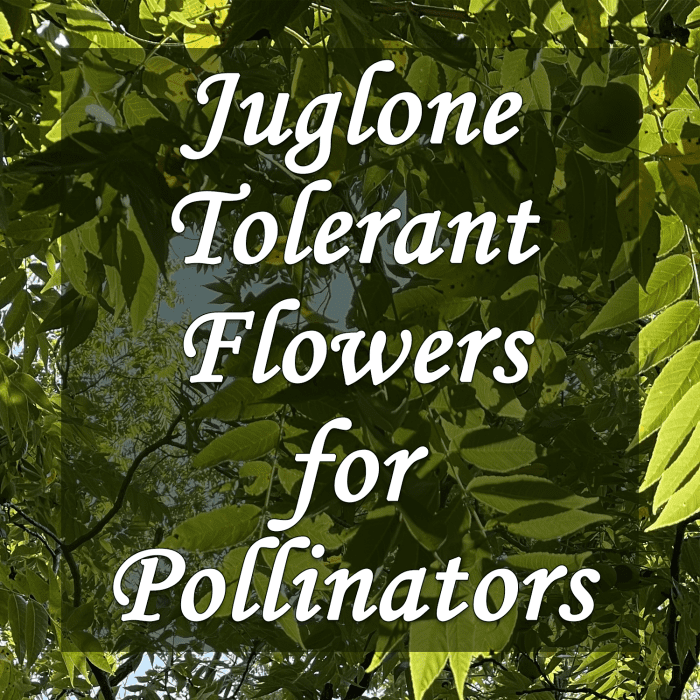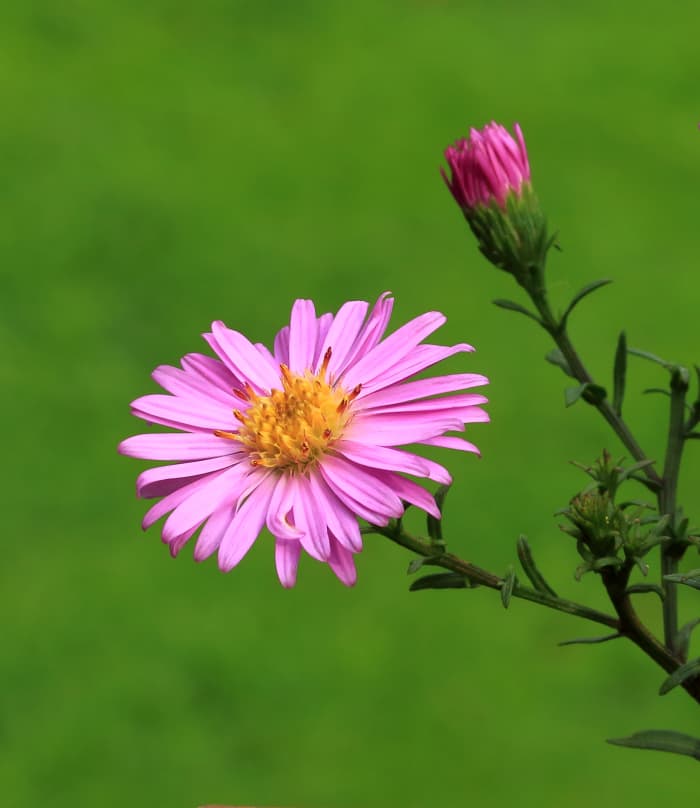Can You Make Syrup From Black Walnut Trees
- Get link
- X
- Other Apps
Jennifer is an environmentalist from Ohio. She is passionate about advocating for the planet and wildlife through gardening and education.

Juglone-Tolerant Flowers That Pollinators Love
Jennifer Wilber
Juglone-Tolerant Plants That Pollinators Love
If your garden is near a black walnut tree, you probably know that many plants have trouble growing there. This is because black walnut trees produce a chemical called juglone that makes it difficult for many other plants to grow. Black walnut trees have developed this as a way of reducing competition for soil nutrients.
Though many plants won't survive in soil with high juglone content, there are many that have adapted to these conditions and will do just fine. Here are some juglone-tolerant plants that are especially attractive to pollinator species, such as monarch butterflies, hummingbirds, and bees.

Aster novi-belgii. Fall Aster.
Dominicus Johannes Bergsma
Asters
There are many species of asters, and most are tolerant of juglone. These flowers are a favorite of pollinators such as bees and butterflies. Many asters are even shade tolerant, so they can be planted right under a black walnut tree without suffering any ill effects.

Bee Balm
Jennifer Wilber
Bee Balm (Bergamot)
Bee balm is a favorite food source of not only bees, but many other pollinators as well. Butterflies and hummingbirds also enjoy the nectar of these native plants. Bee balm is not only tolerant of juglone, but also of shade, making it a great flower to plant under black walnut trees. The leaves and flowers of these juglone-resistant plants can also be used to make herbal teas.

Black-Eyed Susans
Kathy McCarthy
Black-Eyed Susans
Black-eyed Susans are fast growing flowers with large yellow Daisy-like blooms. It is native to the Midwest and central parts of the United States. This eye-catching and juglone-resistant plant is also a favorite of pollinators including bees and butterflies. This flower does require full sun, so plant it where it won't be hampered by your black walnut tree's shade.

Cranesbill (True Geranium)
Jennifer Wilber
Cranesbill (True Geraniums)
Cranesbill, or true geraniums, can survive just fine if they are exposed to juglone. These plants also prefer a bit of shade, so they will be perfectly happy living under a black walnut tree. Cranesbill may also deter annoying pests, such as mosquitos and raccoons from your garden, as their scent is unpleasant to many animals.

Great Blue Lobelia
Jennifer Wilber
Great Blue Lobelia
Great blue lobelia is a favorite food source for pollinators, especially many species of bees. This plant is resistant to juglone in the soil, though it does need full- to partial-sun, so take its light needs into consideration when deciding where to plant it in relation to your black walnut tree.
Read More From Dengarden

Monarch Butterfly on Swamp Milkweed
Jennifer Wilber
Milkweed
Milkweeds are the most important plants for monarch butterflies because they are the only plants that monarch caterpillars can eat. Milkweed plants are a vital food source and habitat for monarchs. It's a good thing that these plants are tolerant of juglone, so they can be planted in your garden worry-free, even if it is near a black walnut tree.

Tall Garden Phlox
Jennifer Wilber
Phlox
There are many types of phlox, many of which are both attractive to pollinators and tolerant of juglone. Both garden (or summer) phlox and creeping phlox are great choices for garden areas near black walnut trees, depending on whether you are looking for a taller flower or ground cover. Both of these types of phlox attract bees and butterflies.

Purple Cone Flower (Echinacea)
Jennifer Wilber
Purple Coneflower (Echinacea)
Purple coneflowers are another favorite food source of pollinators that can tolerate living near black walnut trees. In addition to feeding pollinators, the seeds from purple coneflowers are also a favorite food source of native birds and other wildlife. Like bee balm (bergamot), purple coneflowers (echinacea) can also be used to make herbal teas. This plant may even have medicinal value for treating certain minor ailments.

A Mason Bee pollinating a Shasta Daisy
tegawi / Pixabay
Shasta Daisy
The pollinator favorite is native to Europe, but has naturalized in many areas of North America. These juglone-resistant flowers are aggressive spreaders, so if you choose to plant them, be sure to keep them contained if you live in the United States, or anywhere else other than their native range in Europe.

Yarrow
S. Hermann & F. Richter
Yarrow
Yarrow is another plant that pollinators like butterflies and bees just can get enough of. There are many types of yarrow native to the United States, so it is easy to choose one that is native to your area. Tough it does tolerate juglone, it needs full sun to thrive, so plant it where it won't be shaded by the black walnut tree.

Black Walnut Tree
Jennifer Wilber
Planting Sensitive Plants in Juglone Zones
You may be able to successful plant certain juglone-sensitive plants near black walnut trees by using raised beds. Though all parts of the walnut tree, including branches, nuts, leaves, and roots, contain juglone, you can protect sensitive plants from the toxin by planting in a raised bed with some kind of barrier on the bottom, such as wood or stone, to prevent black walnut tree roots from getting near your juglone-sensitive plants.
If you choose to plant a raised bed near a black walnut tree, be sure to remove ally black walnut debris (branches, leaves, and walnuts) from the bed to be sure the chemical doesn't contaminate your raised bed soil.
This content is accurate and true to the best of the author's knowledge and is not meant to substitute for formal and individualized advice from a qualified professional.
© 2021 Jennifer Wilber
Can You Make Syrup From Black Walnut Trees
Source: https://dengarden.com/gardening/10-Pollinator-Friendly-Perennial-Flowers-that-Grow-Well-Near-Black-Walnut-Trees
- Get link
- X
- Other Apps

Comments
Post a Comment